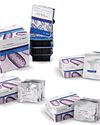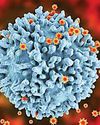Increase in adoption of novel nanomedicines products drives the market growth in India. Moreover, increase in the number of players and high adoption of innovative technologies further fuel the market growth. In addition, robust government initiative toward improvement of healthcare facilities through insurance schemes is anticipated to provide lucrative growth opportunities in the country. The nanomedicines market in India is expected to grow at the highest CAGR of 13.4% from 2016 to 2023.

Geographically, the market for nanomedicine is segmented into North America, Europe, Asia-Pacific, Middle East & Africa, and Latin America. Currently, North America accounts for the largest market share. The Asia-Pacific region is expected to grow at the highest CAGR during the forecast period of 2018-2023, owing to the improving research infrastructure in the region, improved purchasing power of patients, the rapid increase in geriatric population, and rising awareness regarding healthcare. China and India are to be foreseen as the growing nanomedicine markets in Asia.
The global nanomedicine market accounted for $111.9 billion in 2016, and is anticipated to reach $261.1 billion by 2023, registering a CAGR of 12.6 per cent from 2017 to 2023, according to a new report published by Allied Market Research.
A new report by Grand View Research, Inc. observed that the global nanomedicine market is anticipated to reach $ 350.8 billion by 2025. Development of novel nanotechnology-based drugs and therapies is driven by the need to develop therapies that have fewer side effects and that are more cost-effective than traditional therapies, in particular for cancer.
Application of nanotechnology-based contrast reagents for diagnosis and monitoring of the effects of drugs on an unprecedented short timescale is also attributive drive growth in the coming years. Additionally, demand for biodegradable implants with longer lifetimes that enable tissue restoration is anticipated to influence demand.
As per the World Health Organisation (WHO) factsheet, cancer is found to be one of the major causes of mortality and morbidity worldwide, with approximately 14 million new cases in 2012 and 8.2 million cancer-related deaths. Thus, demand for nanomedicine in order to curb such high incidence rate is expected to boost market progress during the forecast period.
Diese Geschichte stammt aus der February 2018 ,Vol 16 Issue 05-Ausgabe von Bio Spectrum.
Starten Sie Ihre 7-tägige kostenlose Testversion von Magzter GOLD, um auf Tausende kuratierte Premium-Storys sowie über 8.000 Zeitschriften und Zeitungen zuzugreifen.
Bereits Abonnent ? Anmelden
Diese Geschichte stammt aus der February 2018 ,Vol 16 Issue 05-Ausgabe von Bio Spectrum.
Starten Sie Ihre 7-tägige kostenlose Testversion von Magzter GOLD, um auf Tausende kuratierte Premium-Storys sowie über 8.000 Zeitschriften und Zeitungen zuzugreifen.
Bereits Abonnent? Anmelden

Sartorius Stedim Biotech opens new centre for bioprocess innovation in US
Sartorius Stedim Biotech, a leading partner of the biopharmaceutical industry, has opened its new centre for Bioprocess Innovation in Marlborough, Massachusetts in the US.

Agilent introduces innovative Mito-rOCR assay kit for mitochondrial research
Agilent Technologies Inc. has announced the new MitorOCR Assay Kit.

Qiagen launches AI-extension of Ingenuity Pathway Analysis for automatic interpretation of biological data
Qiagen has announced the launch of Ingenuity Pathway Analysis (IPA) Interpret, a new feature designed to simplify and accelerate the interpretation of complex biological data.

Parse Biosciences announces expansion of Evercode BCR product line
Parse Biosciences, a leader in scalable single cell sequencing solutions, has announced the expansion of its Evercode BCR product line to enable applications in mice.

New technology for unambiguous detection of HIV genome using tailored fluorogenic tests
A team of scientists at Jawaharlal Nehru Centre for Advanced Scientific Research (JNCASR), has developed a novel diagnostic technology known as the GQ Topology-Targeted Reliable Conformational Polymorphism (GQ-RCP) platform.

Gene mutation likely cause for developing autism in early childhood: RGCB study
Autism, a developmental disorder that causes functional abnormalities in brain development, is caused by a combination of environmental and genetic factors with its symptoms manifesting in childhood as early as the age of two years.

IIIT-Delhi unveils AI platform for discovering molecules that promote healthy ageing
A team of researchers from Indraprastha Institute of Information Technology Delhi (IIIT-Delhi) has developed AgeXtend, a groundbreaking artificial intelligence (AI)-based platform that is set to transform the search for molecules promoting healthy ageing.

RSSDI study lays focus on Yoga and Diabetes Prevention
Dr Jitendra Singh, Union Minister of State (Independent Charge) for Science and Technology, recently released the landmark study by Research Society for Study of Diabetes in India (RSSDI) on 'Yoga and Diabetes Prevention'.

Dr Alok Khullar steps in as Group CEO of RJ Corp Healthcare
RJ Corp Healthcare, a leading name in the healthcare sector through its renowned entities Cocoon Hospital and Cryoviva Stem Cell Bank, has announced the appointment of Dr Alok Khullar as Group Chief Executive Officer (CEO).

Entod Pharmaceuticals on-boards Dr Anish Desai as Scientific & Research adviser
Mumbai-based Entod Pharmaceuticals has appointed Dr Anish Desai as its Scientific and Research Adviser.